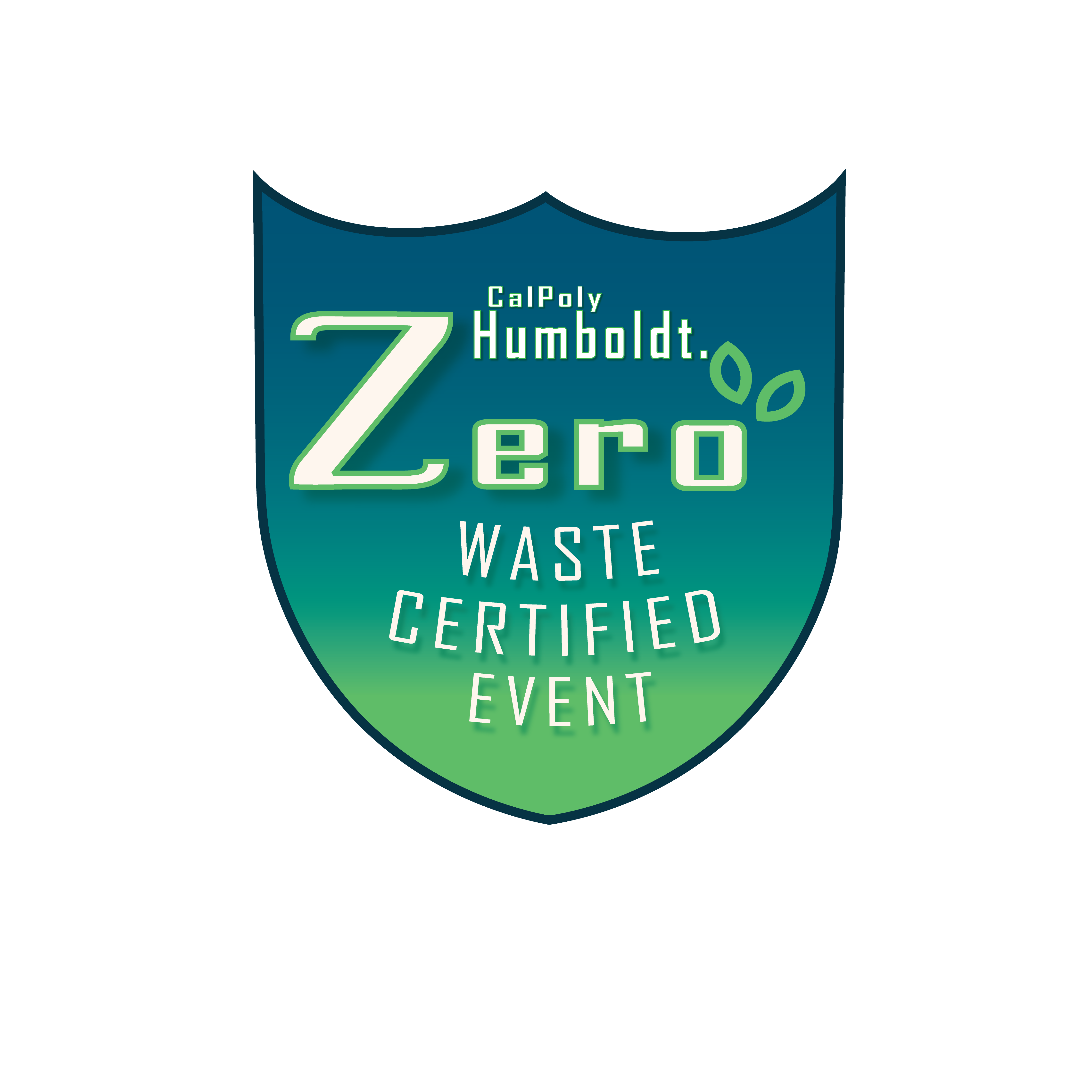Breadcrumb
Zero Waste and Take Back the Tap Branch

We work with Humboldt to reduce waste entering landfills year-round.
WRRAP will work directly with event hosts to help ensure minimal to zero waste at both on-campus and off-campus events. This process helps educate event attendees, reduce waste and award Zero Waste Events certifications. We also help students say no to single-use plastic bottles through maintaining two hydration stations on campus and supplying hydration stations for events.
Event organizers across Cal Poly Humboldt are making their events zero waste! Download the Zero Waste Events Checklist for guidelines on how to get your next event Zero Waste Certified.
Get your next event Zero Waste Certified and you will receive:
- Free consultation on how to integrate zero waste into your event
- Zero Waste Certified Event logo to add to your event promotions and to display at your event
- Recognition in campus-wide announcements and social media
Zero Waste Events Certification Checklist >>>
How To Grocery Shop Zero Waste
Instagram: WRRAP_Humboldt
Facebook: WRRAP Humboldt
Email: WRRAP@HUMBOLDT.EDU

What is Zero Waste?
In 2017, the United States sent over 37 million tons of municipal waste to landfills. WRRAP initiated the zero waste branch to bring awareness to the Humboldt community and the concerning fact that we are using more resources than can be replenished.
- Zero Waste is the idea that we can reduce, reuse, recycle and redesign our consumer culture to a degree that minimizes and eliminates the waste we send to the landfill.
- When these resources are used at a pace that is faster than the earth can replenish them then we enter the dilemma of an unsustainable society with declining resources.
- To combat consumer consumption in a world of finite resources, WRRAP's efforts at Humboldt are to bring awareness of this zero waste initiative.
What is Take Back the Tap?
Single-use water bottles are costing the planet. Prior to Take Back the Tap, also known as TBTT, the production, transportation, storage and disposal of bottled water to meet Humboldt's annual bottled water demand required approximately 43 barrels of oil per academic year and was releasing 35,000 pounds of carbon dioxide into the atmosphere. In 2009, TBTT took the initiative to break the cycle by submitting a grant proposal to the Humboldt Energy Independence Fund (HEIF) requesting funds to purchase a Hydration Station. There are now two stations on campus that are accessible to students; one in the Depot and the other in the Kinesiology & Athletics building.
- The hygienic, hands-free Hydration Stations (located in the Depot and the K & A building) provide people with an alternative to bottled water by dispensing free, filtered tap water.
- Simply bring your resuable mug, mason jar, or waterbottle to the Hydration Station and the automatic dispenser will provide you with clean and filtered water.
- The TBTT branch continues the fight for our rights to clean tap water by providing refillable water bottle stations at Humboldt events such as Commencement, Earth Week, Homecoming, and more.
- TBTT hosts movie nights and works with the Education branch to engage in student-centered outreach.
Green Event Certification
- Waste reduction resource for Humboldt students
- Green Events bring consumption awareness by providing trash bins labeled accordingly.
- Reusable dishware can be provided for events upon request.
- Dish bins can be provided upon request.
- Filtered water through Take Back the Tap can also be provided upon request.
- Please visit our "Get Involved" tab under "About Us" for more information.
Green Graduation
Green Graduation takes place during Humboldt's Spring commencement to reduce and educate on zero waste. This is through providing reusable water cups and hydration stations on site. Additionally, compost bins and compostable foodware are also made available for those attending graduation. The goal of Green Graduation is to not only to reduce waste, but to start an important dialogue with graduating students' families on waste reduction.





